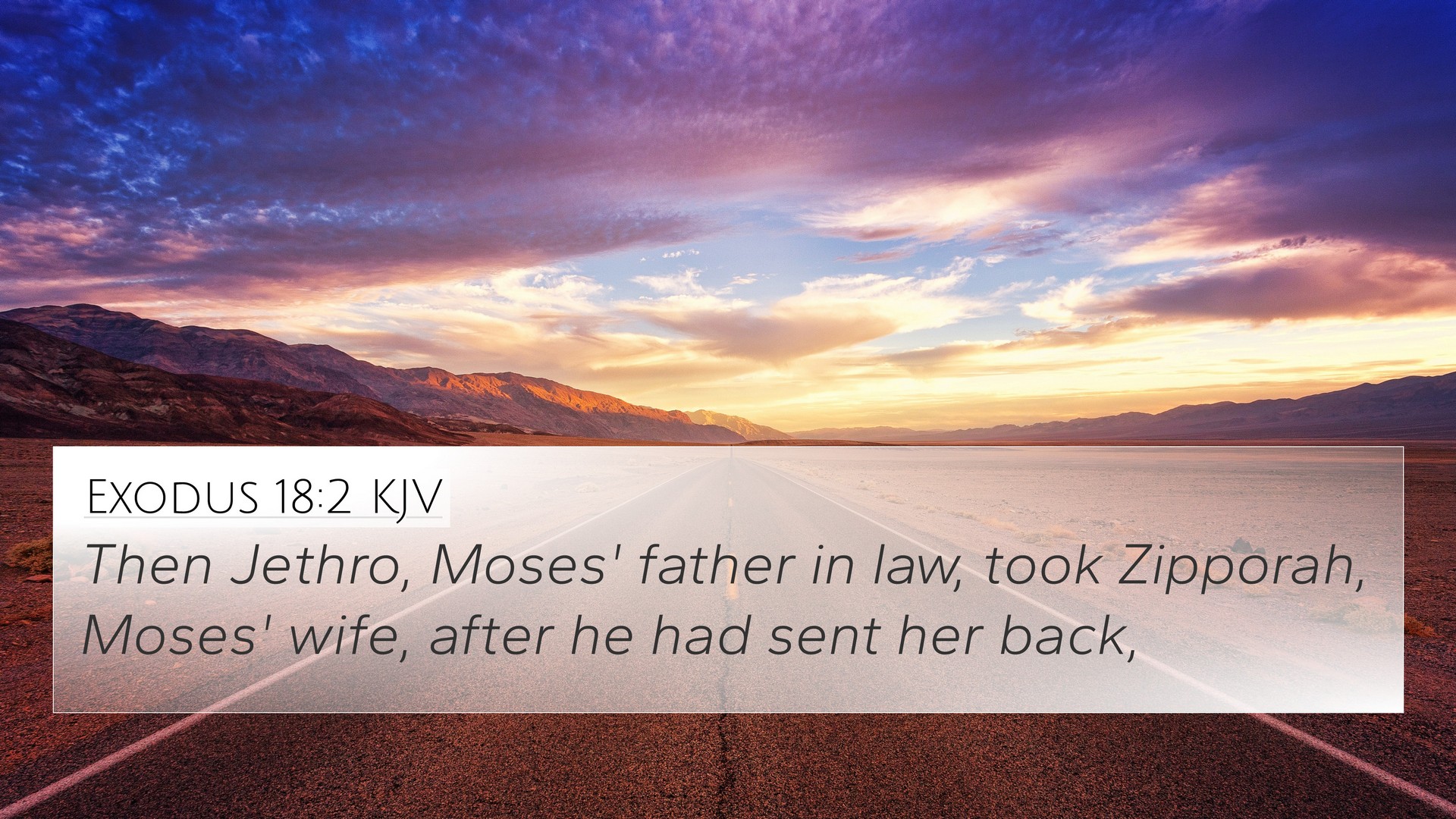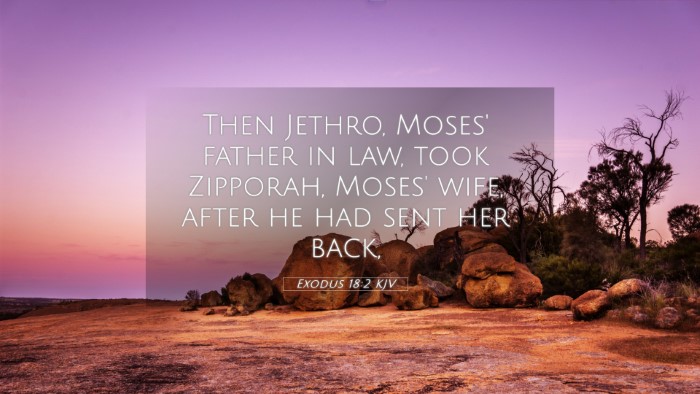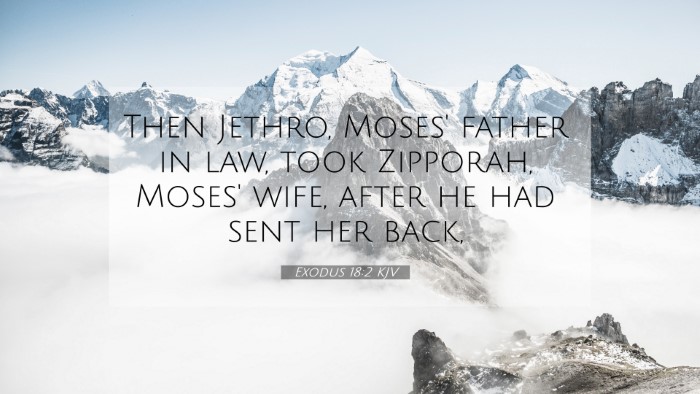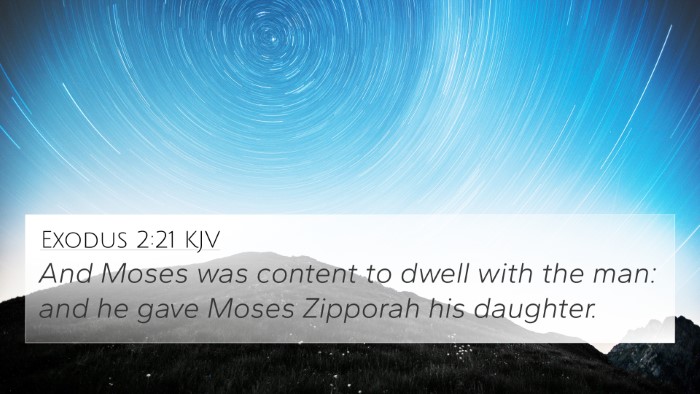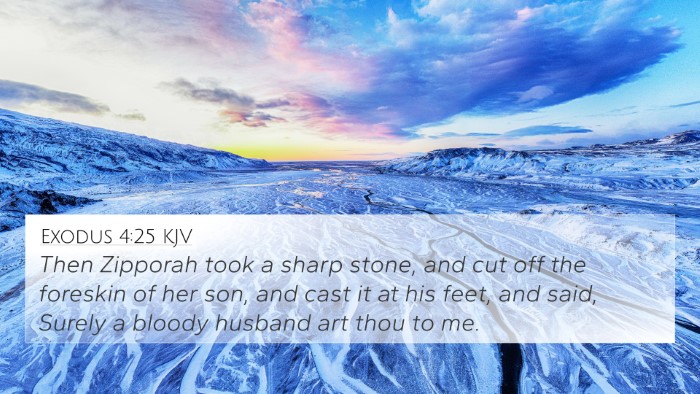Understanding Exodus 18:2
Exodus 18:2 states: "Then Jethro, Moses' father-in-law, took Zipporah, Moses' wife, after he had sent her back." This brief verse captures significant narrative elements that delve into the personal circumstances of Moses amid his leadership responsibilities. This summary combines insights from esteemed public domain commentaries, offering a well-rounded interpretation.
Context and Narrative Background
At this juncture in Exodus, the Israelites have been liberated from Egypt and are journeying towards the Promised Land. Moses, as the leader, faces tremendous pressures not only from the people demanding guidance but also regarding his family life. Jethro, Moses' father-in-law, re-enters the narrative at a crucial moment.
Key Insights from Commentaries
- Matthew Henry's Commentary: Henry highlights the importance of familial relationships and suggests that sending Zipporah back was motivated by Moses' dedication to his mission. Jethro's arrival exemplifies a supportive, paternal figure whose insight can guide Moses in leadership.
- Albert Barnes' Notes: Barnes offers a detailed look into the implications of Jethro's actions. He notes that Zipporah being sent back indicates the burdens weighing on Moses, showcasing the struggle to balance personal life with divine responsibilities.
- Adam Clarke's Commentary: Clarke dives into cultural implications, explaining that during significant events, families often had to make hard choices. The return of Jethro with Zipporah suggests a reconciliation and re-establishing of ties that had been strained.
Thematic Analysis
This verse establishes themes of leadership, family, and divine mission. It captures the tension faced by anyone in a position of responsibility, particularly in a faith-based context where divine tasks can sometimes conflict with personal obligations. The act of sending Zipporah back by Moses conveys a sense of dedication but also loss, suggesting that leadership may often require personal sacrifices.
Cross-References for Deeper Understanding
To expand on the meanings of Exodus 18:2, a number of cross-references can be examined:
- Exodus 3:4: God's call to Moses, emphasizing the weight of his leadership role.
- Exodus 4:24-26: The confrontation with Zipporah highlighting their spiritual and marital tensions.
- Numbers 10:29-32: Jethro’s advice, demonstrating a continued mentorship role over Moses.
- 1 Corinthians 7:32-35: Paul discusses the distractions of marriage and familial obligations related to service.
- Galatians 1:15-16: Paul's separation from his previous life for the call of God, similar to Moses' journey.
- Acts 7:29-30: Stephen's recounting of Moses as a leader confirms the weight of his role.
- 1 Timothy 3:5: The importance of managing one's household as requisite for leadership.
Conclusion
The narrative in Exodus 18:2 serves as a poignant reminder of the intricate balance between personal relationships and leadership roles in a faith context. Understanding this verse, alongside its cross-references, enriches one's study of Scripture, illustrating the human experiences woven within divine callings. Through themes of familial relations, challenges in leadership, and divine mission, this verse invites introspection and deeper analysis into the connected narratives of the Bible.
Using Cross-Referencing Resources
The tools for Bible cross-referencing, such as Bible concordances and Bible cross-reference guides, are invaluable for exploring themes related to Exodus 18:2. These resources provide structured methods for identifying connections between Bible verses and assist in interpreting broad and specific themes effectively.
